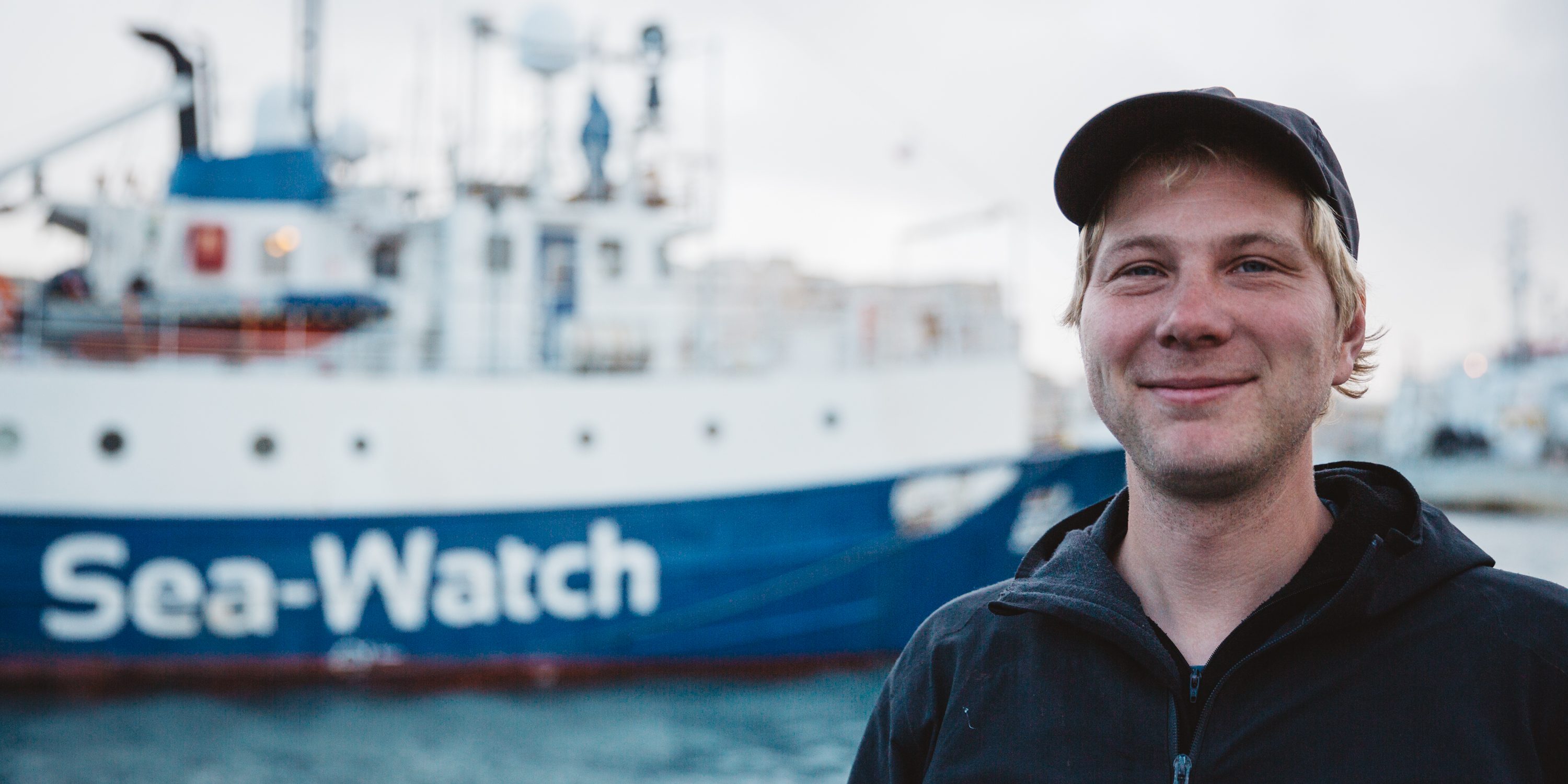Nothing runs smoothly without Welf, Sea-Watch’s head of logistics
Can you really make a difference? With such a tiny ship? Is this really the right way of going about it? Welf Seyer was sceptical when he first read about Sea-Watch in a newspaper in 2015. Later, he heard that the project needed logistical and technical support on Lampedusa. He took his remaining holiday in his job in the offshore department of a major construction company and set off. He packed a suitcase for two weeks – and ended up staying for nearly two months.
His initial scepticism was quickly replaced by a desire for action after embarking on the Sea-Watch 1 for the first time, when he saw what is happening at sea with his own eyes. “You need to imagine: Here we have one of the greatest humanitarian crises in the world and hardly any aid is being provided.”
Welf has previously worked as a logistical coordinator in overseas operations of major aid organisations in Haiti and Nepal. He knows the procedures when a catastrophe of international dimension occurs. “Relief teams from around the world come to the site, whether it makes sense for them to be there or not. Showing presence is what is most important to them. They all want to participate. But somehow, none of this is happening in the European case.” In 2015, when Sea-Watch embarked on its first missions, no major aid organisations except for Doctors without Borders were active in the Mediterranean. Welf was astonished, to him it was clear: “This is where help is needed, if anywhere.”
This is why he now has no less than three positions at Sea-Watch. One of his jobs is managing the ship-repairs of the Sea-Watch 2 during the winter months. As project leader, he developed a catalogue of necessary repairs in agreement with the people on board. Then he had to find qualified people to implement these while managing costs and communications. Welf is also the head of logistics and makes sure that everything needed during missions finds its way to the base camp in Malta.
A lot of work takes a lot of strength. “The last weeks in the shipyard were very demanding”, Welf remembers. Now that the Sea-Watch 2 has returned after her first mission in 2017, Welf can be certain of having done a good job. It is partly his achievement that the crew has already saved 1,450 lives and helped in 3,500 other cases during the first mission this year.
The team is an important factor motivating him to keep going: “We have become real friends here. If all of this was only exhausting, people would leave a lot sooner.” And: “What is great about Sea-Watch is that I can apply just about everything I have ever learned. I can apply knowledge from my apprenticeship as an industrial mechatronics engineer and from my degree in rescue-engineering, for example in the area of logistics.” Apart from this, Welf often embarks on missions with the Sea-Watch 2, where his most important job is steering rigid-hulled inflatable boats.
Welf hopes that Sea-Watch will stay true to the demand for safe entry routes for refugees. “We need a Safe Passage to Europe!”. This is what Welf sees as one of the greatest strengths of the NGO: “By now, there are several organisations doing something similar but Sea-Watch has the strongest message.” Furthermore, he wishes Sea-Watch the strength to resist the flood of accusations and jabs from politicians and populists. “Rescuing people should be the norm.”
Photo: Moritz Richter











